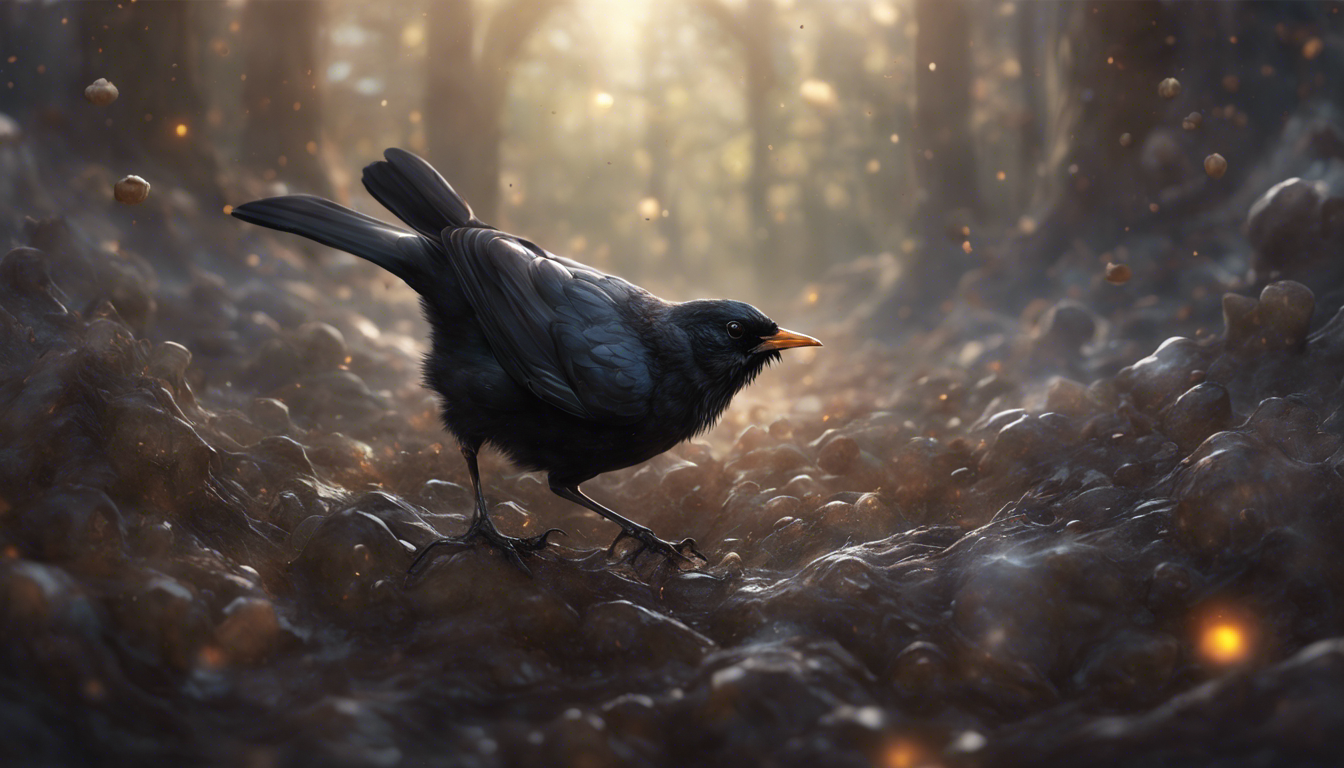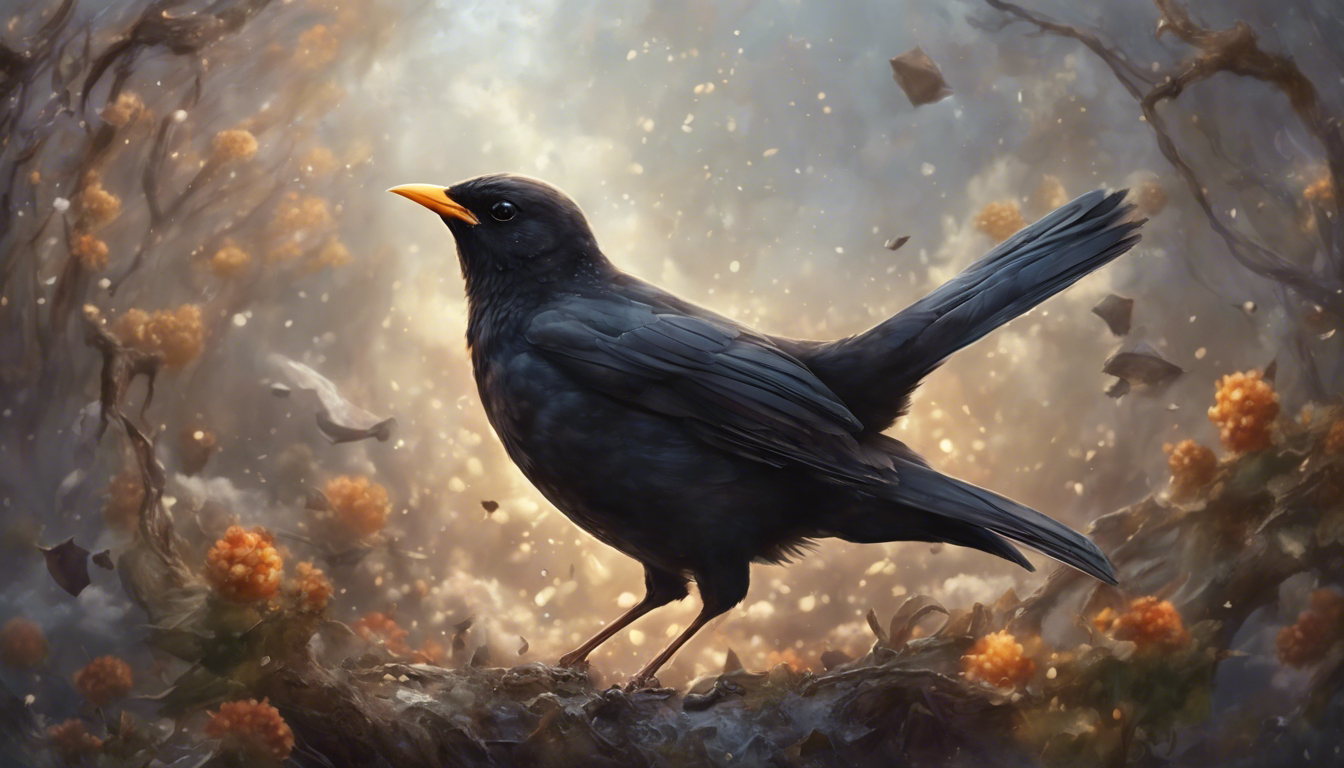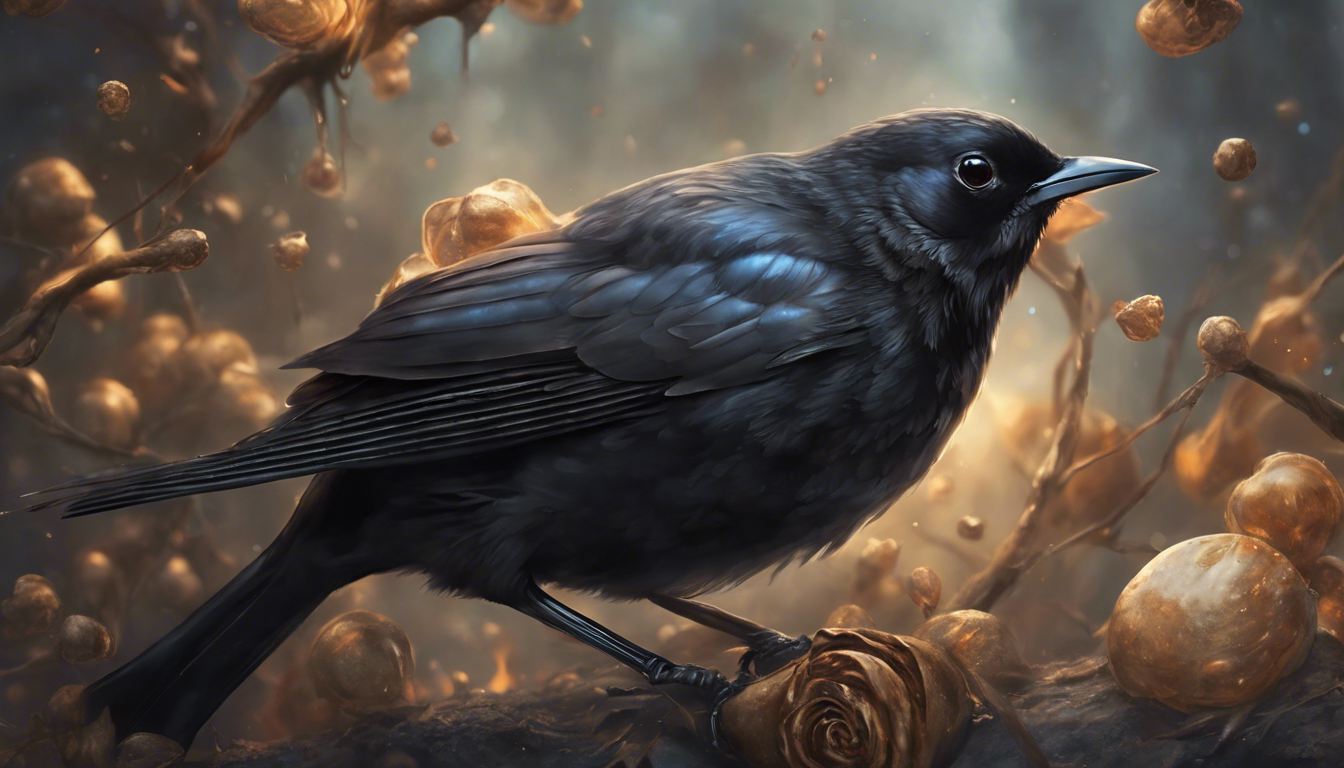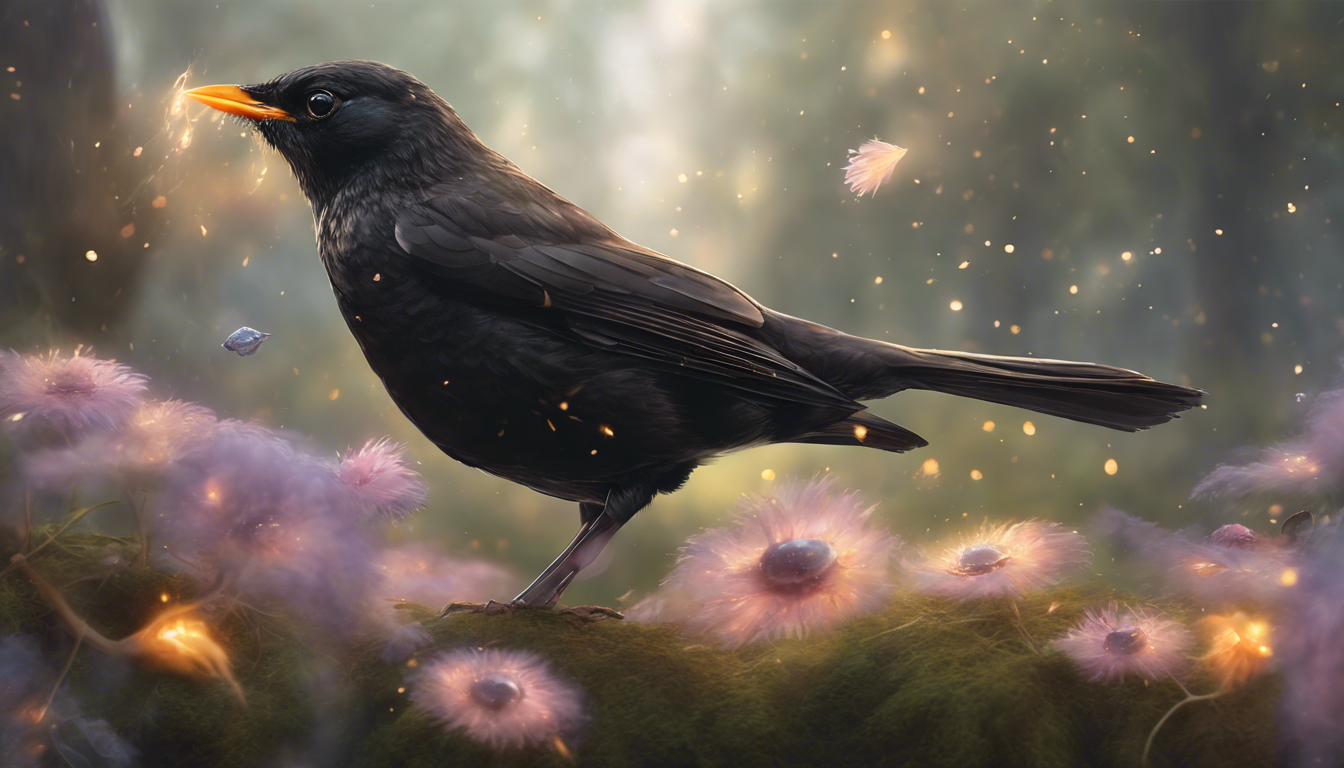Blackbird poop may seem like a mundane topic, but its uniqueness lies in its surprising benefits for our ecosystem. Let’s explore the hidden wonders of this commonly overlooked natural phenomenon.
composition and properties of blackbird poop

composition of blackbird poop
Blackbird poop, also known as droppings, is a combination of waste products from the digestive system of blackbirds. It generally consists of:
– urine: a liquid component that helps eliminate waste and regulate the bird’s body fluids.
– uric acid crystals: a white substance that is the result of the breakdown of proteins in the bird’s diet.
– undigested food: remnants of seeds, berries, insects, and other foods that the bird has consumed.
properties of blackbird poop
Blackbird poop can vary in color and consistency depending on the bird’s diet and health. Some common properties of blackbird poop include:
– Color: Blackbird poop typically ranges from dark green to brown or black in color, reflecting the bird’s diet of fruits, seeds, and insects.
– Texture: It can be either liquid or semi-solid, with a sticky consistency that helps it adhere to surfaces.
– Odor: Blackbird poop may have a strong, pungent smell due to the presence of ammonia in uric acid crystals.
uses of blackbird poop
Despite its unappealing nature, blackbird poop serves several ecological purposes:
1. Fertilizer: Rich in nitrogen and other nutrients, blackbird poop can be used as a natural fertilizer for plants and gardens.
2. Seed dispersal: As blackbirds consume fruits and seeds, their droppings play a role in seed dispersal and plant regeneration.
3. Ecological balance: Blackbird poop contributes to nutrient cycling in ecosystems, supporting soil health and plant growth.
In conclusion, while blackbird poop may not be the most glamorous topic, understanding its composition and properties sheds light on its ecological significance in nature. It serves as a reminder of the interconnectedness of all living organisms and the role they play in maintaining a healthy ecosystem.
unique characteristics of blackbird poop

size and color
Blackbird poop is known for its distinctive characteristics in terms of size and color. Blackbird poop typically appears small in size, often resembling tiny black or dark brown droppings. The color can vary slightly depending on the bird’s diet, but it generally maintains a dark hue that sets it apart from other avian excrements.
texture and consistency
In addition to its size and color, blackbird poop also exhibits unique texture and consistency. The droppings are usually smooth upon landing, with a slightly moist or wet feel. Over time, blackbird poop may dry out and harden, adhering to surfaces with a sticky residue that can be challenging to clean.
composition and odor
The composition of blackbird poop is another noteworthy characteristic. It consists of a combination of waste products, including uric acid and feces. This blend contributes to the distinctive odor associated with blackbird droppings, which can be particularly pungent, especially in areas where birds frequently gather.
placement and patterns
Blackbird poop often exhibits specific placement and patterns, depending on where the birds roost or perch. It is not uncommon to find concentrated clusters of droppings in particular areas, such as on branches, ledges, or rooftops where blackbirds frequent. The patterns left by blackbird poop can vary, adding a unique visual element to its presence.
impact on surfaces and cleaning techniques
Due to its unique characteristics, blackbird poop can have varying effects on different surfaces. While it may not cause significant damage to certain materials, it can be corrosive to paint, metal, and other susceptible surfaces. Cleaning blackbird droppings requires specific techniques to effectively remove the residue without causing further harm.
ecological implications
Despite its negative reputation, blackbird poop plays a role in the ecosystem by contributing nutrients to the soil. The waste products left behind by blackbirds can enrich the environment, serving as natural fertilizers for plant growth. In this sense, blackbird droppings are an essential part of the cycle of life in nature.
In conclusion, blackbird poop possesses unique characteristics that distinguish it from other types of bird droppings. By understanding these traits, we can better appreciate the role it plays in the natural world and develop appropriate strategies for managing its presence in our surroundings.
ecological importance of blackbird poop

the ecological impact of blackbird poop
Blackbird poop, often considered a mundane aspect of nature, actually plays a significant role in the ecosystem. From fertilizing the soil to spreading seeds, blackbird poop contributes in various ways to the health and balance of natural environments.
nutrient cycling and soil enrichment
Blackbird poop is rich in nutrients such as nitrogen, phosphorus, and potassium, essential for plant growth. When blackbirds defecate on the ground, these nutrients are gradually released into the soil, enriching it and promoting the growth of vegetation. This process helps maintain the fertility of the soil and supports the diversity of plant species in the area.
seed dispersal
One overlooked benefit of blackbird poop is its role in seed dispersal. Blackbirds consume a variety of fruits and seeds, and when they excrete them in different locations, they help spread plant species. This dispersal mechanism is crucial for the regeneration of plant populations, especially in fragmented landscapes or areas with limited natural seed dispersal mechanisms.
microbial interactions
Blackbird poop also serves as a medium for microbial interactions in the soil. The feces contain a diverse range of microorganisms that participate in decomposition processes, breaking down organic matter and recycling nutrients. This aids in maintaining the overall health of the soil ecosystem and contributes to its resilience against environmental stressors.
In conclusion, blackbird poop may seem unremarkable at first glance, but its ecological importance cannot be understated. From soil enrichment to seed dispersal and microbial interactions, blackbird poop plays a crucial role in sustaining healthy ecosystems. By recognizing and appreciating these contributions, we can develop a deeper understanding of the intricate connections that support life on Earth.
applications of blackbird poop in various industries
exploring the potential of blackbird poop
Blackbird poop, also known as guano, is a natural substance that has been used for various purposes throughout history. This article will dive into the applications of blackbird poop in different industries and explore its potential benefits.
agriculture and farming
One of the main uses of blackbird poop is as a natural fertilizer. Rich in nitrogen, phosphorus, and potassium, blackbird poop can significantly enhance soil fertility and promote plant growth. Farmers and agricultural experts have been utilizing guano to improve crop yields and overall soil quality. Its organic nature also makes it an environmentally friendly choice for agricultural practices.
beauty and skincare
In recent years, blackbird poop has gained popularity in the beauty and skincare industry. Due to its high nutrient content and natural exfoliating properties, guano is now being used in various skincare products such as masks, scrubs, and creams. The rich minerals present in blackbird poop can help nourish the skin, promote cell regeneration, and improve overall skin health.
biomedical research
Scientists have also been exploring the potential medical applications of blackbird poop. Studies have shown that guano contains antibacterial properties that could be beneficial in the development of new antibiotics. Additionally, the unique composition of blackbird poop is being investigated for its potential use in wound healing and tissue regeneration.
environmental sustainability
Another important aspect of blackbird poop is its contribution to environmental sustainability. As a natural resource, guano can be used as an alternative to chemical fertilizers, reducing the environmental impact of agricultural practices. By promoting the use of blackbird poop in various industries, we can work towards a more sustainable and eco-friendly future.
In conclusion, blackbird poop, with its rich nutrients and versatile applications, holds great potential in various industries. From agriculture to skincare to biomedical research, the unique properties of guano make it a valuable resource with a wide range of benefits. As we continue to explore the uses of blackbird poop, we open up new possibilities for sustainable practices and innovation in different fields.


Article written by Dera
Greetings, I am Dera, a 35-year-old individual with a deep passion for spirituality. Through my website, I aim to share my insights and knowledge to help others on their spiritual journey. Join me on the path to inner peace and enlightenment.